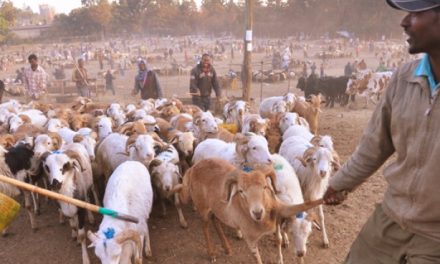
Puma deal shot down
Plans by Puma Energy to dispose its Liquified Petroleum Gas (LPG) business has hit a snag following the decision by the Namibian Competition Commission to reject the merger between Puma’s gas unit and Namox.
Puma Energy inherited the LPG business when it acquired BP Namibia as part of a US$296 million deal that also involved BP assets in Botswana, Zambia, Malawi and Tanzania in 2011. However, the energy company had wanted to dispose its gas business as it did not form part of its core business.
But on Wednesday, the Namibian Competition Commission (NaCC) revealed that its board has rejected the proposed merger at a meeting held on Monday 22 July. NaCC CEO Heinrich Mihe Gaomab II told reporters that the merger was prevented on the grounds that it would have increased the level of concentration in the market and that the transaction would strengthen the merged entities into a dominant position in the gas industry.
Gaomab II added that the commission was also concerned with the effect the proposed merger would have on small and medium undertakings, adding that the merger would have made it difficult for small enterprises to enter and expand within the market.
Namox forms part of the NSX and JSE listed Afrox Group, the biggest supplier of gas in the Namibian market. Ironically, Namox was the sole agent of BP’s LPG business before the acquisition of BP by Puma.
The head of Mergers and Acquisitions Directorate at the NaCC, Vitalis Ndalikokule told the Economist that if Puma still wants to dispose its LPG business then the company will have to dispose the business to other smaller players or alternatively sell their gas assets on auction.
He advised Puma to sell its LPG assets to any other entity other than Afrox/Namox because the group is already big. “The market is still open, they can find someone to buy or they can sell the business peace meal since they have depots in Okahadja and Keetmanshoop,” Ndalikokule advised.
Meanwhile, the competition commission has approved the merger between Agra Limited, A. Rosenthal Ltd and Kalahari Arms and Ammunition trading as Safari Guns and Outfitters. The deal was, however, approved with conditions.
Part of the conditions are that Agra is prohibited from buying any other entity in this market for the next five years. A. Rosenthal and Kalahari Arms, who are wholesalers, will continue to be operated as separate units and are not allowed to merge their structures with Safari Den. “We are doing that to ensure that the smaller traders can still have the benefits of sourcing their inputs from A. Rosenthal while competing at the same time with Safari Den and all others in the retail space. “We are also saying that in terms of prices, Agra should supply the arms and ammunition to their retail branches at a competitive market price as they used to do and not to disadvantage others now that they have acquired the wholesale company,” Ndalikokule said. Agra is also prohibited from sourcing any product at wholesale level from A. Rosenthal. “The reason to say that Safari Den should not source from A. Rosenthal is actually to avoid the kind of collision that could happen because of that.” Ndalikokule said the commission will continue to monitor the merged entities on an annual basis for the next five years to ensure compliance.











































